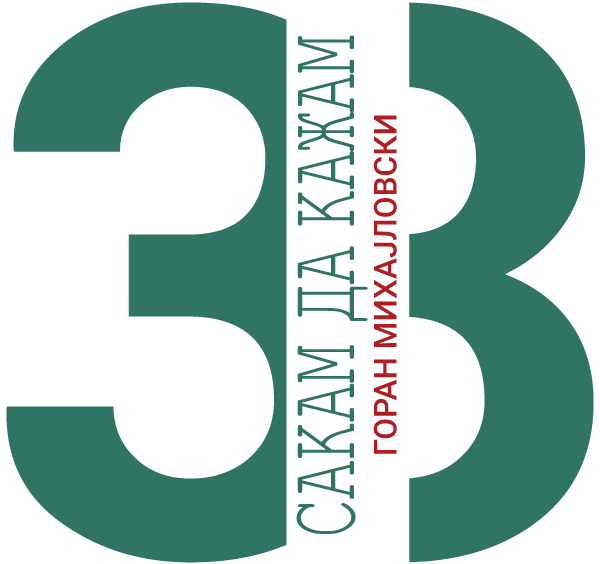1 It’s great that the Government has decided to abolish the economic director positions at the Skopje clinics. The only step remaining is to actually abolish them. After a dozen statements, several announcements, and a few interviews where MPs, the Government, and even the Prime Minster himself have discussed the intention to eliminate these positions, the only thing left to do is to amend the law. And for the new law to be passed in the Assembly. Until then, economic directors will still legally exist.
Economic directors were introduced in 2006, despite criticism from experts, as one of the first key reforms of Nikola Gruevski’s Government. The Skopje Clinical Centre was divided into 32 clinics, with 56 directors and 142 board members. The VMRO-DPMNE and DUI government operated under that law for 10 years.
In their 2016 election programme, SDSM promised to abolish the economic director positions. They even set a deadline of December 1, 2017. Arben Taravari, who was the Minister of Health at the time, dismissed several economic directors but didn’t abolish the system. DUI didn’t allow it.
When Hristijan Mickoski says that the dualism in clinic management creates problems in the functioning of healthcare, I wonder if he is referring only to the eight years under SDSM and DUI, or also the ten years when VMRO-DPMNE and DUI were in power. It’s not as if DUI had better candidates for economic directors during that time, did they?
Mickoski says that abolishing the economic director positions will lead to “fewer officials in healthcare, an end to dualism, and clearer accountability,” and with the reform “all clinics will unify under a single institution, a unified Clinical Centre.”
Things will be great when the economic director positions are abolished. There’ll be more money for healthcare workers and equipment. Things will be great when the Government of VMRO-DPMNE amends the law originally passed by the Government of VMRO-DPMNE. And it’s great that the Government of VMRO-DPMNE will unify the Clinical Centre that the Government of VMRO-DPMNE previously dismantled.
It’s great when people learn from their mistakes. But how sweet it is when you blame others for your mistakes. And at the same time, you cling to the idea that no one will remember them.
2 Mickoski’s government has decided to reinstall the 700,000 euros metal fence around the government building on Ilindenska Street, which was installed by Nikola Gruevski in 2015, during the building’s baroque façade renovation, and was removed by Zoran Zaev’s Government in 2019 because it was a pre-election promise from 2016. Initially, only the metal fence was removed, while the pillars remained because the Government said that their removal would be very expensive. It took them two years to even pull out just the iron. If they were any good, they would have melted it, and they wouldn’t be getting accused now of keeping the fence “improperly, under external influences.” Can you imagine, the fence was outside, exposed to the rain, scorched by the sun.
The current Government now says the building is surrounded by a “dysfunctional and unattractive fence.” We’ve come full circle. From “Your Government’s ugly!” as protesters chanted at the Colourful Revolution in 2016, we’ve come to “Your Government’s ugly!” in 2024.
Should we fear the return of the fence? If 600,000 citizens who voted for this coalition don’t mind the fence, let them return it. Big deal, with or without the fence, we’re dealing with trivial matters.
As they prepare to return the rusty iron, I have only one request for the ministers, to leave the Monument to the Liberators of Skopje unfenced. Back in 2015, I wrote that the monument doesn’t belong to the Government, but to us. Although, the Government is ours as well, but you’d think, it’s about the safety of the Prime Minister and the ministers. Only they know what they’re planning to do if they’ve decided to fence themselves again. The monument is far enough from the government building and it won’t threaten their safety.
Leave room for benches, flowers, student visits, history lessons…
At the same time, don’t claim it can’t be done. SDSM were infamous for making up a million excuses for why something couldn’t be done. You’re not elected to say it can’t be done. Bring back the fence. But liberate the Monument to the Liberators.
3 Mickoski accused the Government of SDSM and DUI of not doing anything for the Macedonians in Albania, which led to about 7,000 people registering as Bulgarians in the last census, although there were none in the previous censuses.
Bulgaria offers its passport to Macedonians in Albania, the passport that ministers in our government hold, and I believe that’s the case with some of our MPs and elected officials as well. With that Bulgarian offer, Macedonia doesn’t stand a chance. Instead of struggling to make ends meet in Pustec, people will find work in Germany with an EU passport.
That hypocrisy, self-absorption and selfishness of the EU frustrate us here in Macedonia and the citizens of Albania alike. And frankly, Mickoski is right when he says that since more people registered as Bulgarians in Albania than in Macedonia, Albania should be asked to include Bulgarians in its Constitution to start the accession talks with the EU. However, he’s not right when he blames SDSM for the statistical increase of Bulgarians in the Albanian census.
I don’t know which Government did what and how much for Macedonians in Albania over the past thirty-plus years of our independence. However, I do recall VMRO-DPMNE showing particular attention to them in 2013, when they registered citizens of Pustec in groups of 40 at one address on an electoral list, when “the poor things held hands and voted.” VMRO-DPMNE certainly showed serious concern for Macedonians in Albania at that time.
Yes, indeed… it’s sweetest when you blame others for your mistakes. And at the same time, you cling to the idea that no one will remember them.
Translated by Nikola Gjelincheski
